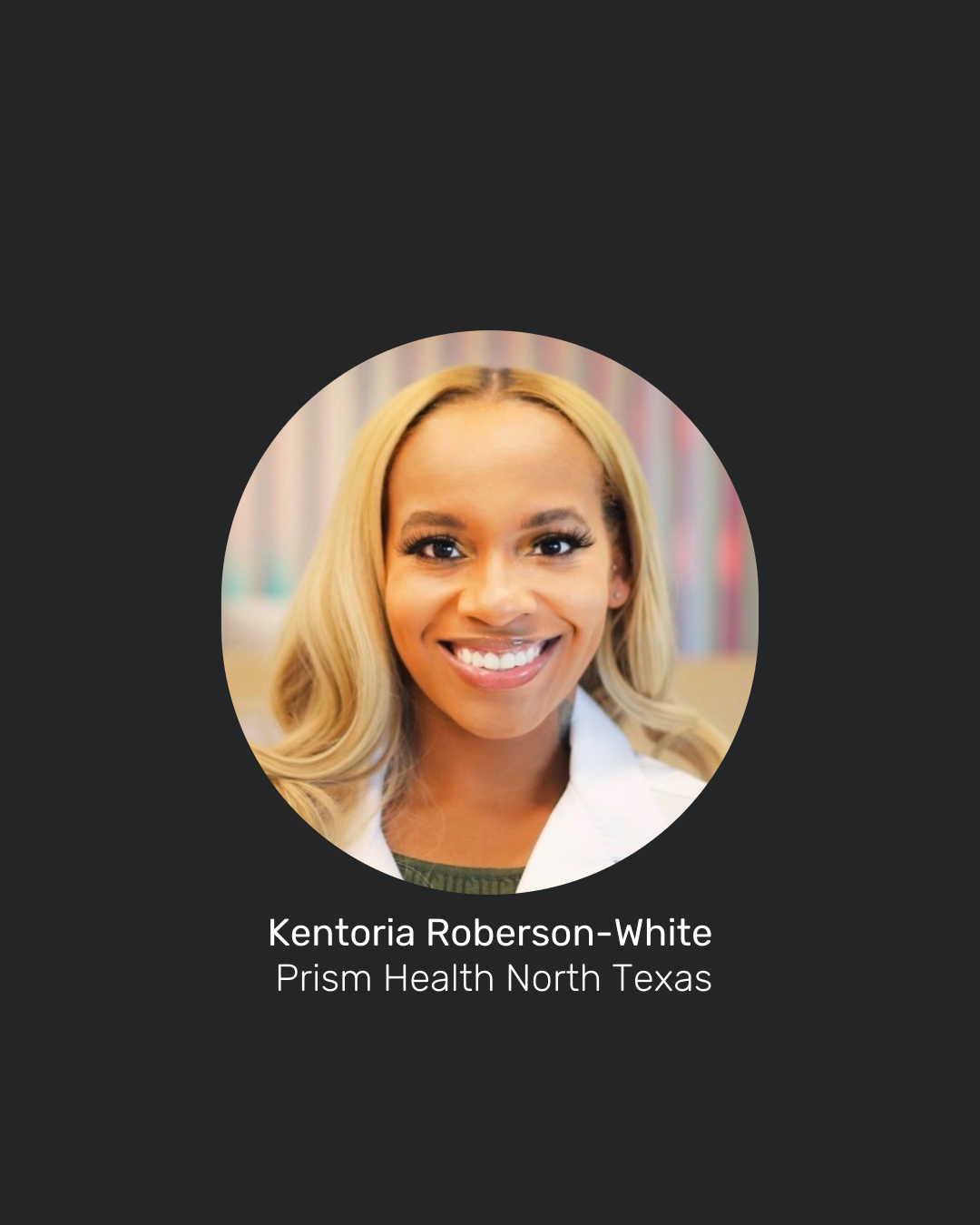Breaking Barriers:
Empowering Adolescent Health
Following our 2025 Health Symposium, we are launching a monthly blog series to feature our Symposium speakers, their expertise, and innovative approaches to Texas adolescent & women’s health education, medical care, and advocacy.
June 2025 spotlight…
Changemaker Awardee Kentoria Roberson-White, a Prism Health North Texas nurse practitioner and founder of Phoenix Health Alliance, hosted “Breaking Barriers: Empowering Adolescent Health” at the Healthy Futures of Texas 2025 Health Symposium.
We’re excited to hear from Kentoria Roberson-White, a phenomenal North Texas health leader who is everywhere, literally, always showing up for her community. Through education, advocacy, and presence, she helps young people access the knowledge and resources they need to thrive. She’s genuine, kind, and relentless in her mission to empower youth and improve health outcomes.
- What are the most pressing barriers to adolescent health in Texas, especially for youth in underserved communities?
From my perspective, the most pressing barriers for our youth, especially in underserved communities, center around limited access to care (think insurance gaps, lack of trusted providers, and complex systems), a critical behavioral health crisis (rising anxiety, depression, and suicide rates with fragmented support), and inadequate comprehensive health education (particularly in sexual health, where current policies often fall short). We also can’t ignore the immense impact of social and environmental factors like poverty, unsafe neighborhoods, and the pervasive influence of digital media.
- How do social determinants of health, such as poverty, education, housing, and food insecurity, affect adolescents?
Poverty, education, housing, and food insecurity aren’t just abstract concepts; they directly impact a young person’s health, their access to vital services, and their ability to thrive. These are the foundational issues we must address.
- What does culturally competent care look like, and why is it essential when working with adolescents and young women in diverse communities?
Culturally competent care isn’t just a buzzword; it’s essential. It means understanding and respecting diverse backgrounds, building trust, and adapting our services to truly meet unique cultural needs. This direct approach is the only way to ensure equitable care and empower adolescents and young women to engage meaningfully with their health.
- What role do schools, community organizations, and healthcare providers play in supporting adolescent health?
Everyone has a role. Schools are crucial hubs for health education and connecting kids to services. Community organizations provide accessible programs and tackle the social determinants of health directly. Healthcare providers offer essential primary care, mental health support, and education. When we all work together, the impact is multiplied.
- What are some strategies or tools that adolescent and women’s health professionals can use to empower youth to take charge of their own health and well-being?
To empower youth, we need to equip them with skills. This means fostering youth leadership, teaching them health literacy to make informed choices, providing safe spaces for open discussion, and offering accessible mental health support. By giving them the tools and confidence, we empower them to take charge of their own well-being.
- How can policy changes at the state or local level improve adolescent health outcomes in Texas?
Looking to the future, policy changes are our biggest lever for improvement. We need state and local policies that:
-
- Mandate comprehensive, evidence-based health education.
- Expand confidential access to crucial health services for minors.
- Significantly increase funding and workforce for adolescent mental health.
- Invest directly in addressing social determinants of health.
- What calls to action can we make to youth- and women-serving professionals, community leaders, and/or educators?
My call to action is clear and hopeful: To all professionals, leaders, and educators serving youth and women: Let’s commit to fostering trust, embracing cultural competence, and empowering youth voices. Let’s champion policies that prioritize their health and well-being. By working together, proactively and with genuine understanding, we can build a future where every young person in Texas has the opportunity to achieve their full health potential.



